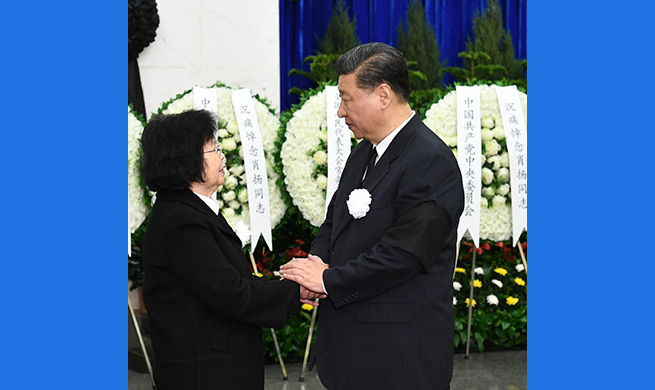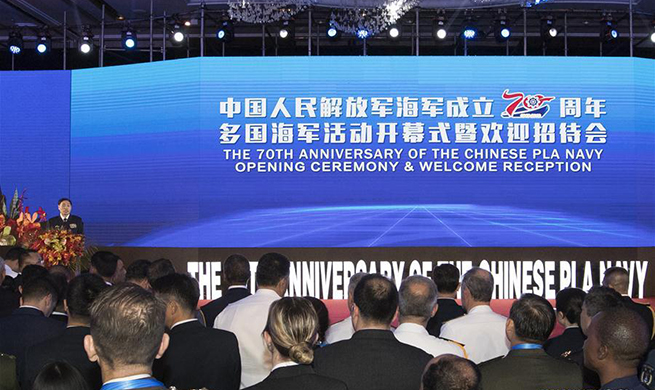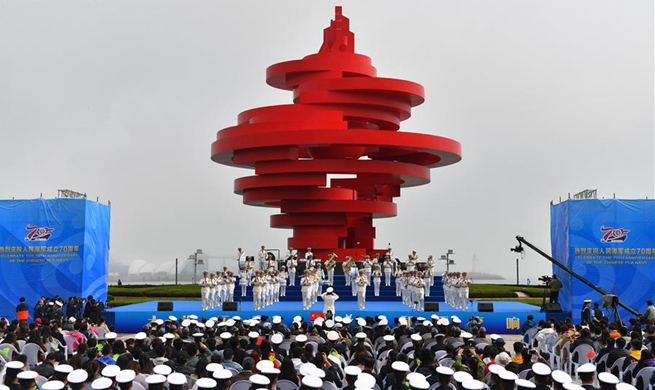PHILADELPHIA, the United States, April 21 (Xinhua) -- The 2019 Penn Wharton China Summit, a forum focused on China's development, concluded here on Sunday, highlighting the significance of promoting cooperation and exchanges between Beijing and Washington.
The three-day event brought together dozens of experts and entrepreneurs from various fields who offered insight into China-U.S. relations and the potential for cooperation in the future.
PROSPECT FOR COOPERATION
Calling China-U.S. ties "the most important in the world," Max Baucus, former U.S. ambassador to China, said Beijing and Washington need each other in dealing with international challenges.
"For both countries, we need each other as we plan ahead to deal with the geopolitical matters," Baucus said. "There are lots of examples where we truly need each other."
Baucus, meanwhile, urged patience, positiveness and persistence from the U.S. side in handling ties with China, adding that the bilateral relationship "has to be managed extremely carefully."
"There are very few things in my professional life that are more important to me than the relationship between China and the United States," Geoffrey Garrett, dean of the Wharton School at the University of Pennsylvania, told the audience at the event.
"We are living in a time where obviously there are real challenges in the global system, challenges in the national level, frictions between the U.S. and China," Garrett said. "I think nothing could be more important than to increase, open people-to-people dialogue between our two countries, and this event embodies that spirit."
Meanwhile, Avery Goldstein, a professor of international relations at the University of Pennsylvania, told Xinhua that China and the United States do share areas of cooperation.
The two sides should continue to cooperate and prevent areas of conflict from spilling over into the areas of cooperation, Goldstein added.
BRI FRAMEWORK
During the summit, the Belt and Road Initiative (BRI) topped the agenda as the second Belt and Road Forum for International Cooperation (BRF), scheduled for April 25-27 in Beijing, draws near.
The BRI is helpful for unlocking the potential of emerging markets and many U.S. businesses want to know more about it for making investment decisions, the participants concluded.
"Belt and Road is enormous. It's no overstatement to say it could be the project of the century," said Garrett, while commenting on the China-proposed initiative that aims at building a trade and infrastructure network connecting Asia with Europe, Africa and beyond.
"For every emerging market in the world other than China, infrastructure is about the biggest challenge they face. If you want to unlock the full potential of emerging markets, we need to help emerging markets build infrastructure," Garrett said.
"The Chinese government is thinking about 20 years from today, 50 years from today," he said. "I think that the U.S. needs to follow China's lead and think differently about the way it finances infrastructure development."
Sun Zhe, co-director of the China Initiative at Columbia University's School of International and Public Affairs, said there is a desire on the U.S. side to know more about the Belt and Road Initiative.
Many U.S. businesses want to know how many countries have joined it, and how much China has invested in it and how it deals with international capital, so that they could decide whether to be part of it, he said.
COOPERATION IN TECHNOLOGY
A panel of experts said that China and the United States should use their respective advantages and enhance cooperation in technology, such as artificial intelligence (AI).
Bill Huang, founder and CEO of CloudMinds, an operator of cloud-based systems for intelligent robots, said that he thinks the United States is leading the world in software innovation, while China, with its industrial chain, has an edge in hardware innovation.
"I think China cannot do without America, and America cannot do without China," Huang said.
Zhou Wei, a founding managing partner of Beijing-based venture capital China Creation Ventures, said that massive data in AI and robotics fields in China could give entrepreneurs and their projects an advantage, with more training data available.
China tends to quickly adopt new technologies, which has facilitated technology application in the country, Zhou said.
Li Zhen, chairman of Guoxuan High-Tech Power Energy Co. Ltd, said at the discussion that there is still a technological gap between China and the United States, especially in fundamental research.
"The United States has a very solid foundation for inventions, while China has the market driving force in application," Li said, urging the two countries to work together so as to go further in technology development.











